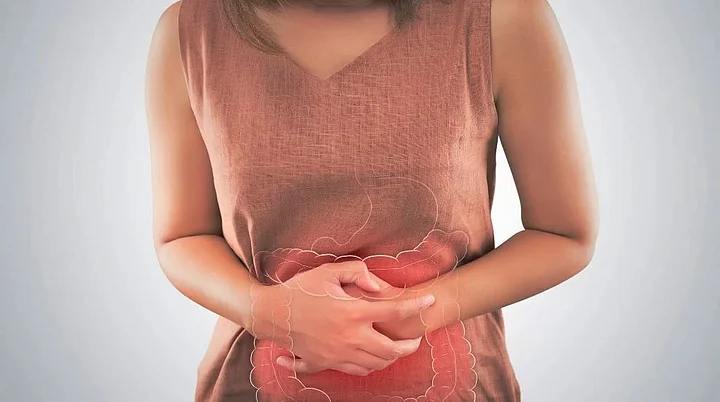Ulcerative colitis is an inflammatory bowel disease that causes long-term inflammation, sores, or ulcers in your intestines. It affects the lining of the large intestine: the colon, rectum, or both. The condition generally begins in the rectum and spreads upward and might spread to the entire colon.
A colon is a tube-like organ in the abdomen that carries waste to be expelled from the body. The rectum is the end of the colon adjacent to the anus. Ulcerative colitis can be debilitating and sometimes can lead to life-threatening complications such as thickening of the intestinal walls. severe dehydration, colon perforation, etc.
The longer the condition is left untreated, the higher the risk of developing colon cancer. It affects males and females equally. Let's know more about the types, causes, symptoms, diagnosis, and treatment of Ulcerative Colitis.
Ulcerative Colitis: Types
According to the Crohn's Colitis Foundation, there are different types of Ulcerative Colitis and it depends on its location:
Ulcerative proctitis is referred to as a type of ulcerative colitis in which the inflammation is confined to the rectum and rectal bleeding would be one of the major symptoms.
Proctosigmoiditis is the type in which inflammation affects the rectum and the sigmoid colon, which is the lower end of the colon. Rectal bleeding, bloody diarrhea, and tenesmus are a few of the symptoms. Some people might experience abdominal cramping or pain.
Left-sided colitis involves inflammation that starts from the rectum and extends through the sigmoid colon and descending colon. Symptoms you need to be careful about are abdominal cramps, bloody diarrhea, pain on the left side of the abdomen, and sudden weight loss.
Pancolitis, also known as universal colitis refers to the inflammation that affects the entire colon and causes symptoms like severe bouts of diarrhea, fatigue, abdominal cramps, unintended weight loss, etc.
Fulminant colitis is a rare form of pancolitis that involves symptoms like profuse diarrhea, bleeding, fever, difficulty in eating, etc.
Ulcerative Colitis: Causes
According to the doctors of Mayo Clinic, the reason for ulcerative colitis is not yet known but the immune system undergoes an abnormal response wherein it starts attacking the cells of the digestive system as well. Diet and stress have proved to be the conditions that worsen the conditions further.
The continued abnormal immune response causes inflammation and ulceration in the large intestine, which might be genetically inherited. The condition is more common in people whose family members suffer from the same condition.
Ulcerative Colitis: Symptoms
According to the doctors of Cleveland Clinic, the symptoms of ulcerative colitis differs from person to person depending on the severity of inflammation and its location. A few of them include:
Fever
Diarrhea
Rectal Pain
Abdominal pain
Sudden weight loss
Urgency to defecate
Joint pain and swelling
mouth sores
Loss of appetite
Nausea
Eye inflammation
Ulcerative Colitis: Diagnosis
According to the doctors of Mayo Clinic, different tests can help rule out other complications and other forms of bowel disease, the other diagnostic tests include:
Blood tests to check for anemia, which affects the ability of red blood cells to carry oxygen and other signs of infection.
Stool tests can help rule out conditions caused by bacteria, viruses, etc, and the presence of white blood cells and certain proteins suggests the risk of ulcerative colitis.
Colonoscopy is a process in which a thin, flexible, lighted tube is inserted to test the colon for any abnormalities and a biopsy is also done if needed.
Sigmoidoscopy is similar to colonoscopy but the rectum and sigmoid colon is examined with a thin, flexible tube.
Imaging tests like MRI, CT scan, and X-ray are done to check for any abnormalities in the abdomen or intestine.
Ulcerative Colitis: Treatment
According to Healthline, the treatment may include medication or therapy. The kind of medicines used might depend on the severity and location of the inflammation.
Medications may include anti-inflammatory drugs like corticosteroids and immune system suppressors that suppress the abnormal response originating in the immune system. Antibiotics might help people with fever and antidiarrheals might help people with severe diarrhea.
Surgery may also help treat the condition by removing the entire colon, another surgical option includes an ileoanal procedure in which the large intestine is removed except for rectal stump and anus.
(At The Quint, we question everything. Play an active role in shaping our journalism by becoming a member today.)
